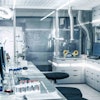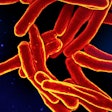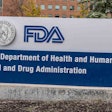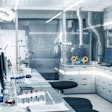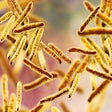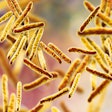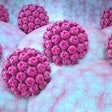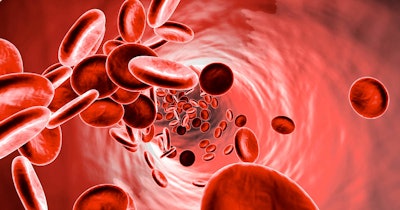
Six months after the U.S. Food and Drug Administration (FDA) approved a one-time gene therapy for severe hemophilia A reportedly priced around $2.5 million per patient, the Center for Inherited Blood Disorders, a 340B treatment center in California, has announced the drug's first infusion.
The first milestone for gene therapy in severe hemophilia A in adults, however, came in late June 2023. That is when the FDA approved Roctavian (valoctocogene roxaparvovec-rvox; BioMarin Pharmaceutical) with the AAV5 DetectCDx, a companion diagnostic blood test developed by the pharma services group of ARUP Laboratories, a nonprofit enterprise of the University of Utah.
"BioMarin’s new gene therapy uses adeno-associated virus serotype 5 (AAV5) as a vector to deliver a functional copy of the gene for FVIII in a one-time infusion, with the goal of reducing or eliminating the need for chronic prophylactic treatment," ARUP said in a news release. "AAV5 DetectCDx will be used to determine the presence of preexisting anti-AAV5 antibodies, which may inhibit the efficacy of the treatment."
ARUP's companion diagnostic (CDx) kit involves a qualitative in vitro diagnostic test that uses a bridging immunoassay and electrochemiluminescence to determine whether anti-AAV5 antibodies are present in the blood plasma of a person with hemophilia A. The laboratory developed test is sponsored by BioMarin and is offered at no cost to evaluate eligibility, according to the test's label.
Hemophilia A happens in the absence of factor VIII (8) clotting protein. Approximately 400 boys are born with hemophilia A each year, the National Bleeding Disorders Foundation (NBDF, formerly NHF) reports, citing U.S. Centers for Disease Control and Prevention (CDC) statistics. An estimated 12 males per 100,000 in the U.S. live with hemophilia A, and while it is typically passed down from parents to children, about one-third of hemophilia A cases found have no previous family history, according to the NBDF.
The European Commission began paving the way for the novel gene therapy Roctavian with companion diagnostics in 2022 when the EC granted conditional marketing authorization. In August 2023, BioMarin announced that the first person was treated in Germany, where hemophilia treatment centers were testing people with hemophilia to determine their treatment eligibility. BioMarin was targeting outcomes-based multiyear agreements with health insurance groups.
"We've treated the first U.S. Roctavian commercial patient at the end of December. I think this milestone, together with now the publishing of the German price [gross price of 28,933.53 euros ($31,674.11) per vial, approximately $900,000 net revenue per patient] I think are important milestones in the activation of this market," BioMarin's new president and CEO Alexander Hardy said Monday at the JP Morgan Healthcare Conference in San Francisco, in remarks available via webcast. "The reality is this is a highly disruptive therapy in a very complex market."
Since the approvals and announcements, ARUP Laboratories has announced a partnership with Medicover, a diagnostic and healthcare service network of ambulatory clinics, hospitals, specialty care facilities, laboratories, and blood drawing points to further the test and, potentially, the treatment in Poland, Germany, Romania, and India.
Meanwhile, in the U.S., the efficacy of Roctavian in hemophilia A will now be monitored on the patient (known as Max), according to a statement from the Center for Inherited Blood Disorders. Founded in April 2009, the Center for Comprehensive Care and Diagnosis of Inherited Blood Disorders is a 501(c)(3) organization that maintains 340B pharmacy services which may be supported by special drug pricing from the Health Resources and Services Administration.


